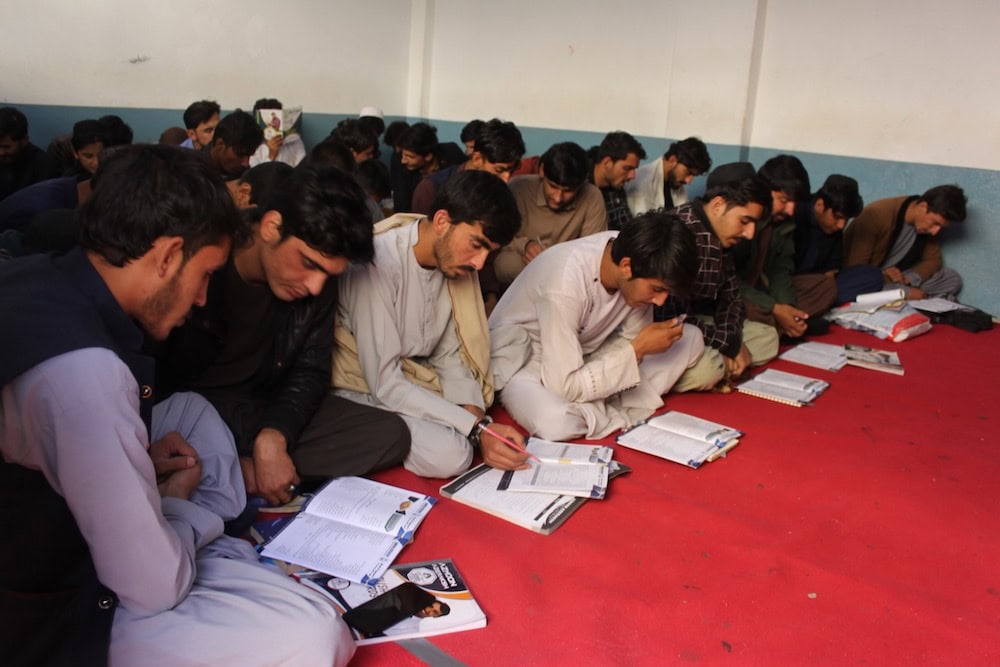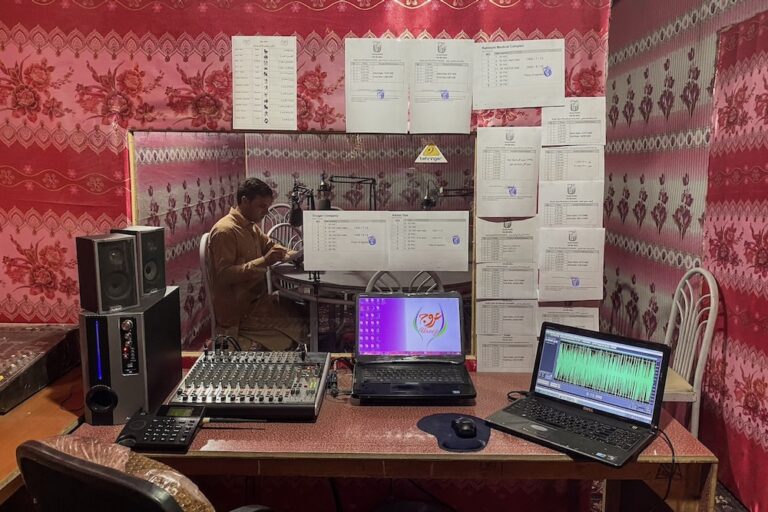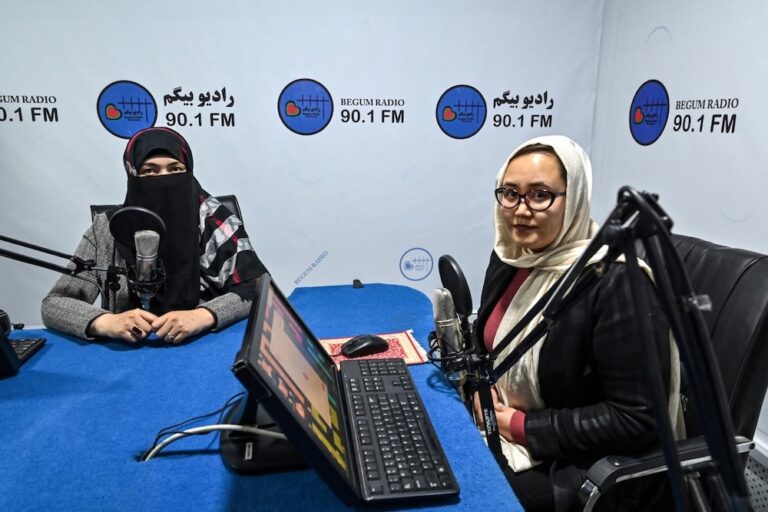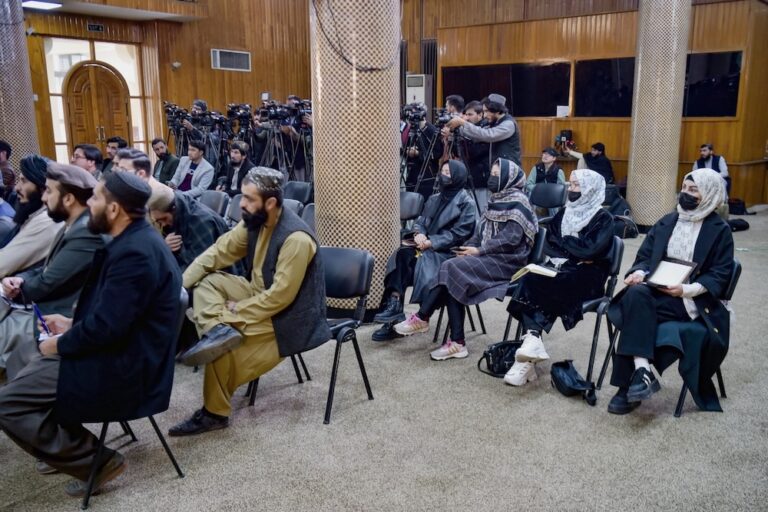The Afghanistan Journalists Center has condemned the arrests and called for the urgent release of the journalists.
This statement was originally published on afjc.media on 24 April 2024.
The recent arrest of three local journalists in southeastern Khost province on charges related to the publication of music and communication with female listeners is a concerning development. The Afghanistan Journalists Center (AFJC) condemns these arrests and calls for the immediate and unconditional release of the journalists.
A journalist in Khost province, who is familiar with the issue but spoke to AFJC on the condition of anonymity due to fear of retaliation by local Taliban officials, stated that Ismail Sadat, reporter of Naz Radio, Vahidullah Masoom, reporter of Iqra Radio, and Ehsanullah Tasal, reporter of Wolas Ghag (Voice of the People) Radio, were summoned and arrested on Monday, April 21, around 10:00 a.m.
These journalists were then transferred to the Taliban police headquarters in Khost at 1:30 p.m. on the same day and have been detained since then. Another source in Khost province mentioned that the Department of Virtue and Vice of the province initially invited the heads of these three radio stations under the pretext of participating in a joint meeting. However, three reporters went to the meeting on their behalf and were subsequently arrested.

On April 23, the Department of Virtue and Vice in Khost province confirmed the issue through a message in the joint group of this department and journalists on messaging App, WhatsApp. The message stated that “media were advised multiple times not to include background music in programs or to make phone calls in entertainment programs with women, as it is forbidden. Those who violated this order [will be] sentenced to prison by the department and will be charged for not implementing the laws of the Islamic Emirate (Taliban) and will be introduced to the court in the future.”
After the Taliban returned to power in August 2021, the publication of music in the media was banned nationwide. The ban on phone calls of girls to the media is a new issue implemented by the order of the Taliban police chief in Khost province in February 2024.
There are currently 15 radio stations and three private television channels operating in southeastern Khost province, in addition to the national (state) radio and television. Educational programs through media outlets have increased in the country, including in Khost province, due to the ban on schools for girls above the sixth grade. Local media officials in Khost argue that answering listeners’ questions and using background music in some programs is necessary to better promote educational content.
AFJC strongly condemns the arrest of the journalists in Khost province and considers it an illegal act that goes against Afghanistan’s media law. AFJC demands the immediate and unconditional release of the journalists and calls for the cancellation of directives that severely restricted media freedom in the country.
Under the Afghanistan Mass Media Law enacted by the previous government, which the Taliban government has recognized as still valid, individuals are guaranteed the right to freedom of expression, including the dissemination of information without government interference. However, there have been reported directives of Taliban officials intimidating and meddling in media operations, thereby weakening press freedom.



